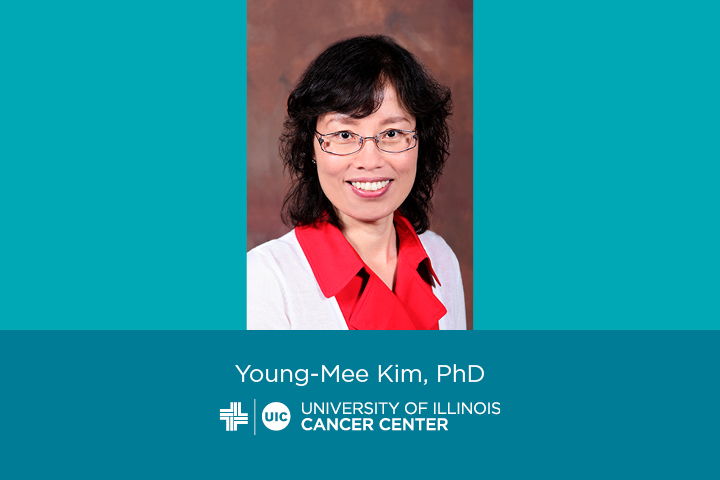
Shedding a few pounds is a goal for many, but cancer patients often lose the wrong kind of weight when they don’t want – or need – to, leading to the loss of muscle mass. Young-Mee Kim believes improving blood flow to the body’s muscles will alleviate cancer cachexia – muscle wasting in cancer patients – and help restore their much-needed muscle strength.
Kim, PhD, research assistant professor at the University of Illinois College of Medicine’s Department of Cardiology, has joined the membership ranks at the University of Illinois Cancer Center. A native of South Korea, Kim is currently using genetically modified animal models to understand the mechanisms of cancer cachexia and how treatments can prevent the occurrence, or even reverse it.
“I am very excited about my ongoing cancer cachexia project because we have discovered that muscle vascular density is critical to maintaining muscle strength and mass in mouse models,” Kim said.
Kim’s interest in cancer was piqued as she learned that the disease’s growth is due to physiological and pathological angiogenesis, and she yearned to know more. She spent seven years conducting research investigating how DNA damage and drug resistance affects lung and head and neck cancers, and how to develop effective therapeutic approaches to treat the disease.
Kim’s research, which she conducts in the laboratory of Jalees Rehman, MD, professor of medicine and pharmacology at the University of Illinois College of Medicine, is currently under review at Nature Communications. Her goal, she said, is to direct an independent research group studying translational vascular biology in cancer, and to identify novel regulatory mechanisms that could form the basis for future therapies to improve vascular health in cancer patients. She has extensive training and expertise in vascular biology, redox biology, and proteomic analysis of post-translational protein modifications.
Kim received both a bachelor’s and master’s degree in molecular biology from Dankook University in Seoul, South Korea. She received her doctorate degree in molecular life science from Ewha Womans University, and completed a postdoctoral fellowship at the National Cancer Center in South Korea and at Emory University in Atlanta. Kim served as a research scientist at UIC for four years (2013-2017) before transferring to Augusta University in Augusta, Ga., for one year to complete a research project that was published in Cell Reports. She then returned to UIC in 2018 as a research assistant professor.
In 2019, Kim was the recipient of an Early Career Development Award from the American Heart Association. Her three-year project is entitled “Extra-mitochondrial roles of Mitofusion 2 in the regulation of endothelial barrier function during acute vascular injury.”
